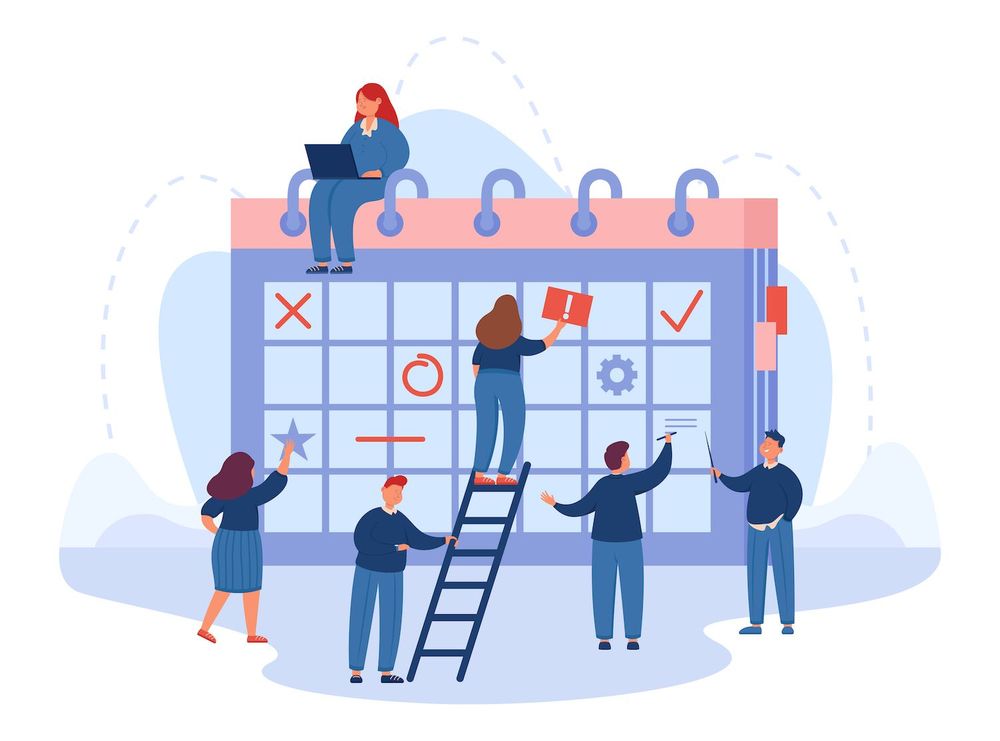Terms

"I was raised and was born in Southern Vermont," starts Max Mackson of Maximilian Mackson, LLC. I attended homeschool up to high school. It gave me the chance to work on computers. I learned HTML, CSS, and JavaScript as the primary internet-based languages, and continued to tinker in the background with various projects."
At the age of an early adult Max was enrolled in the theatre school. "I was taught how to act professionally. The director we had was extremely demanding. I'm glad to have accomplished since he taught me how to be punctual and to make sure that you're on time," he adds. Max's first IT job experience was at the exact same date. "Between my junior and sophomore year in high school, I was employed at a country club situated in the town. I would be there every week for their web-based updates, and it was God horrible! The company used a disconcerting third-party website that took 30 minutes to complete jobs that using WordPress would have only taken two minutes." the author describes.
Conversations with strangers in person while working on the technology certainly assisted He continues. "I'm focussed on my personal connections. I make a lot of value from relationships. While at the country club, the energy was high all the time. So if the printer in the kitchen stopped functioning, I was forced to run to the kitchen. The kitchen was extremely hot and everybody was moving around me. The group was "in the zone" immediately!"
Max loved seeing in person his results from his efforts in battling the tense relationship with technology at times. "When I was working with other people I'd tell them "Okay I've just posted an update on this computer And I'd get to see if it could be beneficial to them or if they'd be confused. I was able to see the differing perspectives of people and find out what people's reactions to technology are. Many IT people will simply declare, "Oh, this is the way things are currently and it's the latest update" and I find this irritating. I love working with people."
Max discovered that having a good grasp in technology could improve people's lives. In the days of country clubs the printers he disliked began "They don't work when you want for they to!" he smiles. He has a smile. involved in repairing equipment; working with them gave him an understanding of the system's structure "I ended up reworking every system they had over the decades. It is still my job to jobs for them," he adds.
He's trying to figure out his own
For a formal training, Max went to Champlain College situated in northern Vermont however, he learned something different that the traditional course. "I was among twelve majors in information technology and it was hilarious when you consider that while I was in college , it was determined by the college that they were planning to end the particular major! They brought us into the room and were like, 'Hey, you fellow students, you're having the possibility of graduating. We're just not going to give you a major until next year""
Max was introduced to audio-visual production because of his experience in the theater. "That needed more work to fix the technology since all classrooms relied upon computers, projectors, and projection screens" Max says. "When the technology went down it was when we'd enter these huge rooms with a lot of people and everyone would stare at us. After that, we'd sit on a table and change out an old lamp to use as a projector!"
"I stayed in college for less than two years. I decided to leave because I was a bit disappointed that it took so long. The internet is moving fast so by the time you end needing to study something in the college level, it's obsolete within the world of work. For the professors having to study and impart this knowledge to the students, it's an extended amount of time." Max says.
The speed of innovation hasn't diminished and in fact, has increased and the rate and purpose of higher education caused Max to establish his own company. One of the reasons that Max quit was his vision of the future wasn't as bright as the expectations of his school: "They liked to say that they had 99 percent of their students employed immediately after graduation - which is great, but they're extremely concerned with making sure that every student is ready to be successful in the workplace. I like working with other people , but not when working alongside them in this manner. It wasn't for me."
Thus, Max went out by himself and began seeking his first customer. He was just taking an online course and the guy running it had asked for reviews. Max recalls: "I sent one in hoping to practice my writing abilities. However, at the bottom I wrote "PS - If I am able to serve you, tell me'. And the man replied"Well, what do you need to do?'"
Max looked over the website and wrote up an organized checklist of modifications: "No BS, just simple and succinct" and Max got a straightforward response: "Text me" as well as a telephone number. "That was the only way that I got the job. To this day, he's an outstanding client!" Max smiles.
Projects and services
"You have every piece of software used to power your company, yet they're not communicating with one another. Max is the person who can get that software to communicate perfectly," Max says. Max explains how this results in one more robust system, which can accelerate business growth and save the time and energy. "I consider myself to be a systems architect and integrator. My parents and a lot of other people are just calling me"the IT person!" he jokes.
Max The author explains that an average client's technology stack could comprise 100 components of software that are all scattered. "You have to bring these parts together so they are able to communicate with one with each. I began working with a small group of clients on web design Then I began to work on integration in April 2021, as one of my clients was looking to establish a member-only community."
Max worked with the client, who was an influencer in the area of wellness and health as well as an advocate, for a while and things were running smoothly. Max was not familiar with membership but it was clear to him exactly what issues might arise. "I was able to research several software programs that allow membership. I have a way of looking up diverse list of the most efficient software, and then I'll combine them."
Max picks software to provide users with the most enjoyable experience as both from the admin's point of view and a user's perspective, in order to reduce support times for users in the long term. It is essential to be simple. "I am able to be in a more sophisticated context, however I understand that when something reaches the stage where it's unusable by people who use it regularly. Customers want to purchase something and would like to have access to. The normal thing is that whenever a customer registers on the site I'm be aware of the expression to their face. When I explained it, the eyes of my audience would glaze over!"
Integration styles and the future
"Integrations might appear complex," Max muses. "They can be found in many forms as well as different dimensions. To integrate natively similar to Mailchimp, simply press a couple of buttons and the integration will be approved, and then you're set. Low-code and no-code integrations, like Zapier's Zaps, and completely custom ground-up solutions where you create all of the components from scratch."
"Generally I work in the zero-to- low-code area, as it is typically effective for my clients. However, for one specific integration, my client was looking to go very deep into the integration. They needed to include all the functions of an integrated native system, but they decided to implement it through Zapier. I had to use a dozen different Zaps to make the complete system wired and make it appear native. I had to add another custom code."
What made that particular initiative particularly interesting was the amount of participants. "The the first day began the project, we put over 50,000 jobs up for grabs and it was astonishing! It was necessary to refine the system several times before it made sense. In the end, it could be brought reduced to just 5000 or less work daily, which is quite excessive."
The author adds: "That was the first occasion I worked on a project of this scale with Zapier. I've participated in various projects throughout time, including those that had more focus on design, and others that involved more technology, but, this was my favorite."
The greater scale of development is the driving factor for Max's next steps. He states: "Longer term, I want to develop software that is designed for businesses." Max adds his thoughts regarding software are many since it's such a crucial aspect of his career and also because software has changed throughout time. "It gets slow and bloated and isn't user-friendly anymore. It's constantly releasing UI improvements that make it more difficult to use. At present, there are many users who are expecting software to fail!"
He says he's trying to provide a more simple easy-to-use experience for customers. "It's currently in the developing phase, however I've come up with an idea that's intriguing. The idea is expected to take about 6 months off, since I operate on my own the majority of the time. I do not like working for an agency: the idea is handed over to a developer who is not known, which is later locked inside the closet! I'm uncomfortable in this situation and I prefer to collaborate with individuals in a one-on-one manner."
Max is a regular contributor to his blog, sharing his most recent thoughts with--and gives preferential treatment to--subscribers of his email list (which is often referred to by the "#MilianFam"). Additionally, as an exclusive bonus for subscribers who are new to the list, he's created a special bonus training, and, as of this post it's not available in any other place, with the cost of.
This post was posted on here
